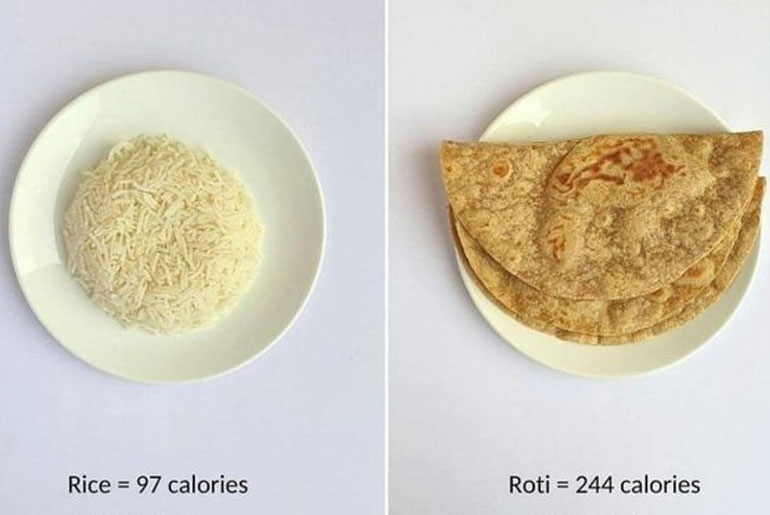For weight watchers and diabetics, roti is generally the healthier choice compared to rice. Roti, made from whole wheat, offers higher fiber content, which promotes satiety and supports digestive health, helping to control hunger and maintain stable blood sugar levels. In contrast, rice, particularly white rice, is a simple carbohydrate that digests quickly, leading to rapid spikes in blood sugar. Additionally, roti provides essential minerals like calcium, magnesium, and potassium, which are often lacking in rice, and contains sodium that helps regulate blood fluidity. Thus, roti’s complex carbohydrates and nutrient profile make it a better option for managing weight and diabetes.
Nutritional Comparison:
- Roti: Rich in fiber, minerals like calcium, magnesium, and potassium, and contains more complex carbohydrates. The fiber in roti aids in prolonged satiety, promotes gut health, and helps control blood sugar levels due to its low glycemic index (GI). This makes roti a favorable choice for weight management and diabetes control. It also contains sodium, which is essential for maintaining blood fluidity and preventing heart issues.
- Rice: Particularly white rice is high in simple carbohydrates that digest quickly and can lead to rapid spikes in blood sugar levels. It provides less fiber and fewer minerals compared to roti. The rapid digestion of rice can leave you feeling hungry sooner, which may not be ideal for weight management or blood sugar control.
Health Implications:
- Obesity and Diabetes: Roti is a better option for managing weight and controlling diabetes due to its fiber content and low GI. It helps keep blood sugar levels stable and promotes a feeling of fullness, reducing the likelihood of overeating.
- Nutrient Intake: Roti provides essential minerals that are largely absent in rice, contributing to better overall nutrient intake.
In summary, while rice and roti both offer carbohydrates, roti’s higher fiber content, essential minerals, and lower glycemic index make it a more beneficial choice for those focusing on weight management, diabetes control, and overall nutritional balance.
Disclaimer:
The information contained in this article is for educational and informational purposes only and is not intended as a health advice. We would ask you to consult a qualified professional or medical expert to gain additional knowledge before you choose to consume any product or perform any exercise.







